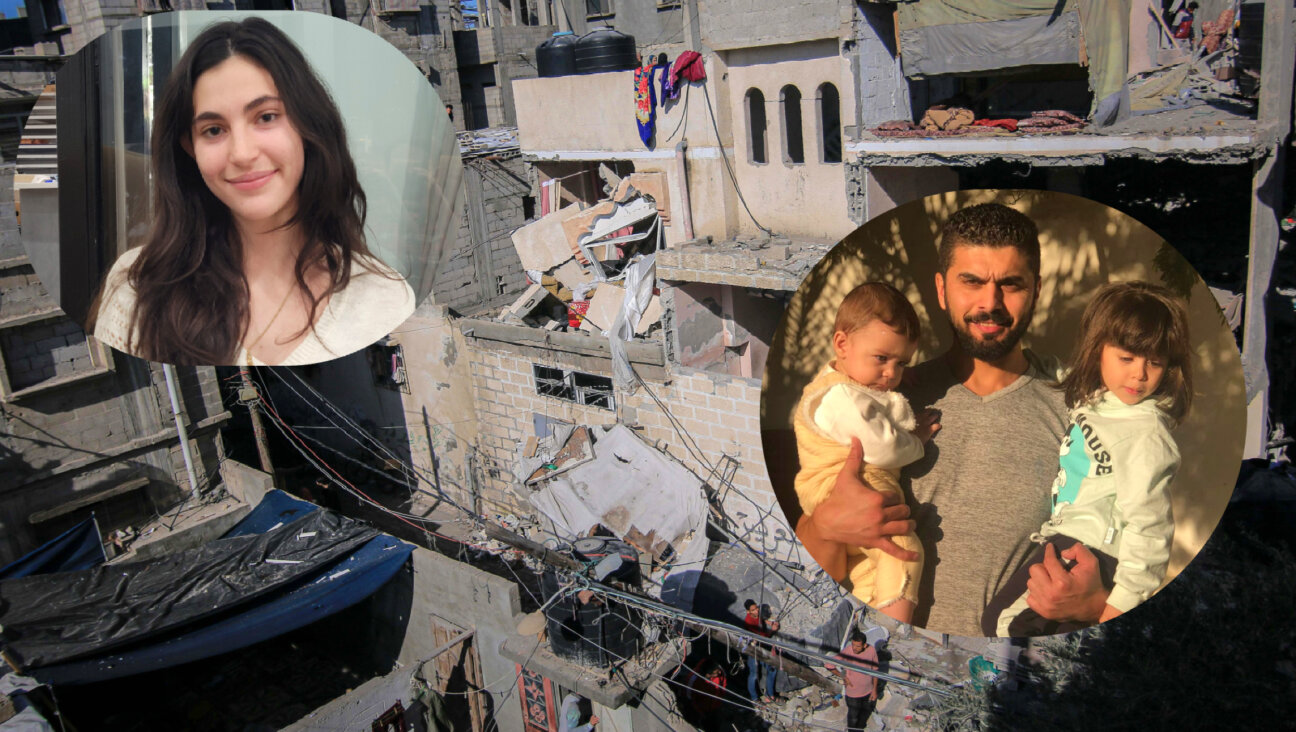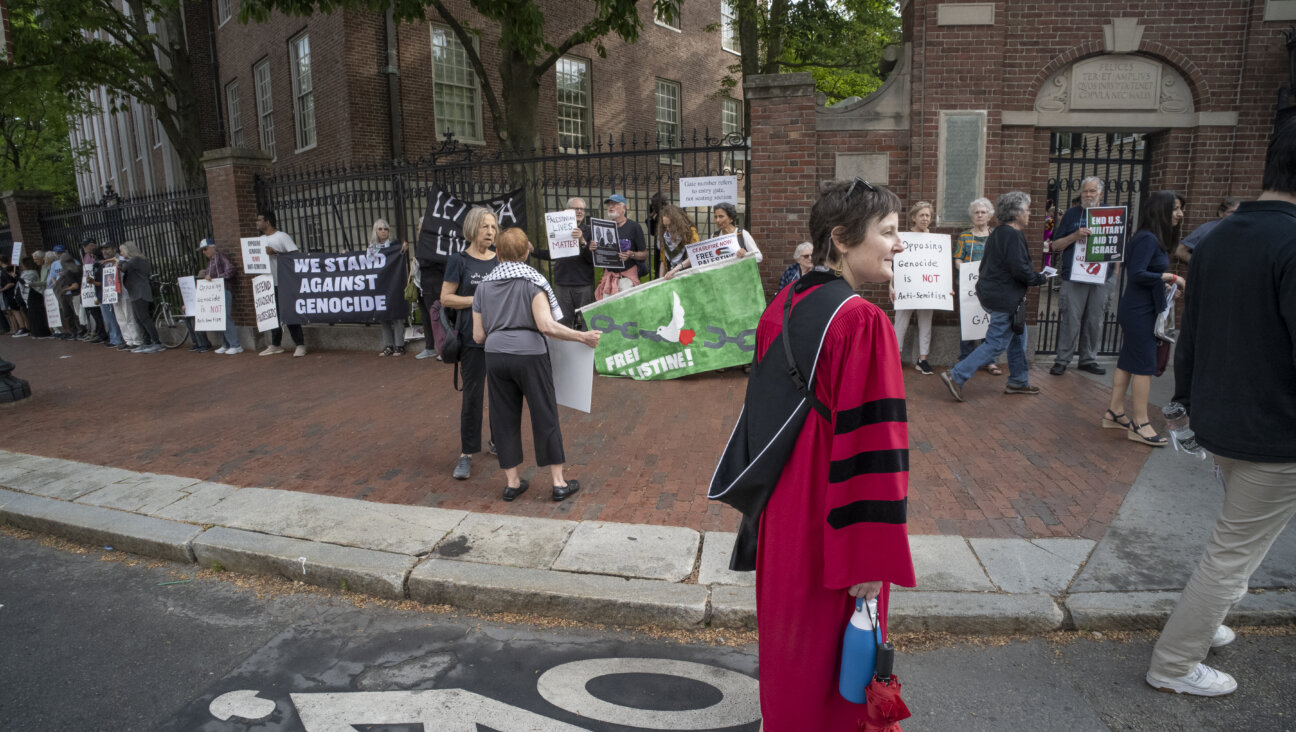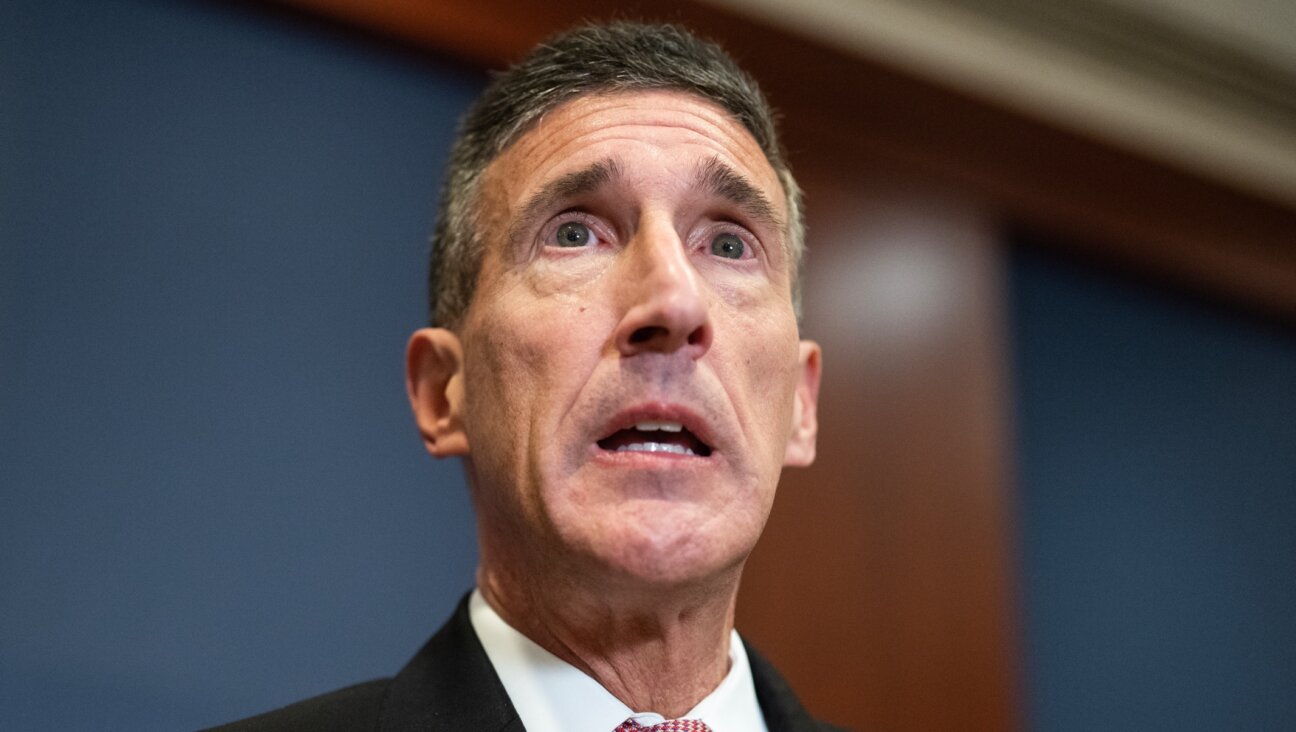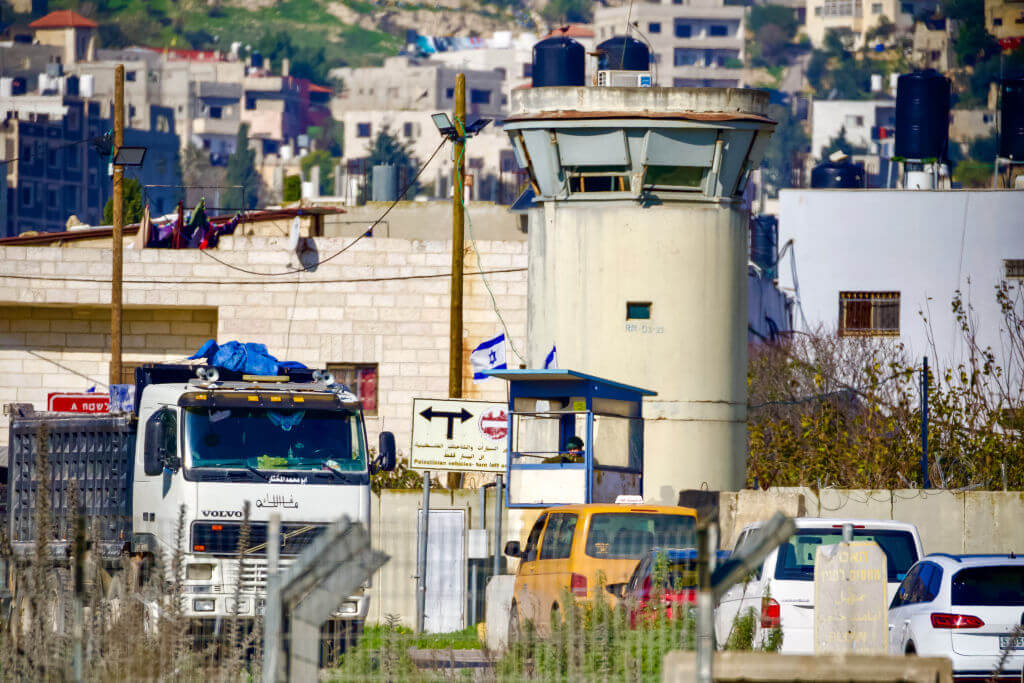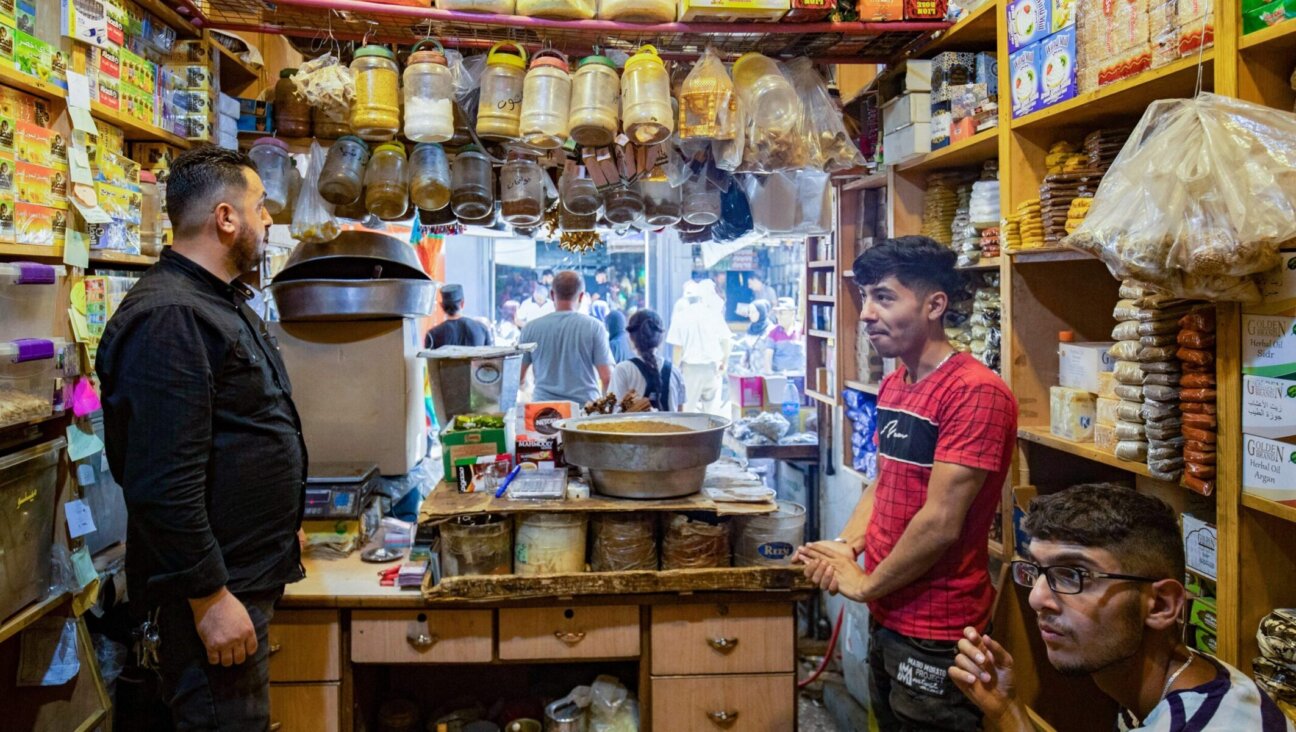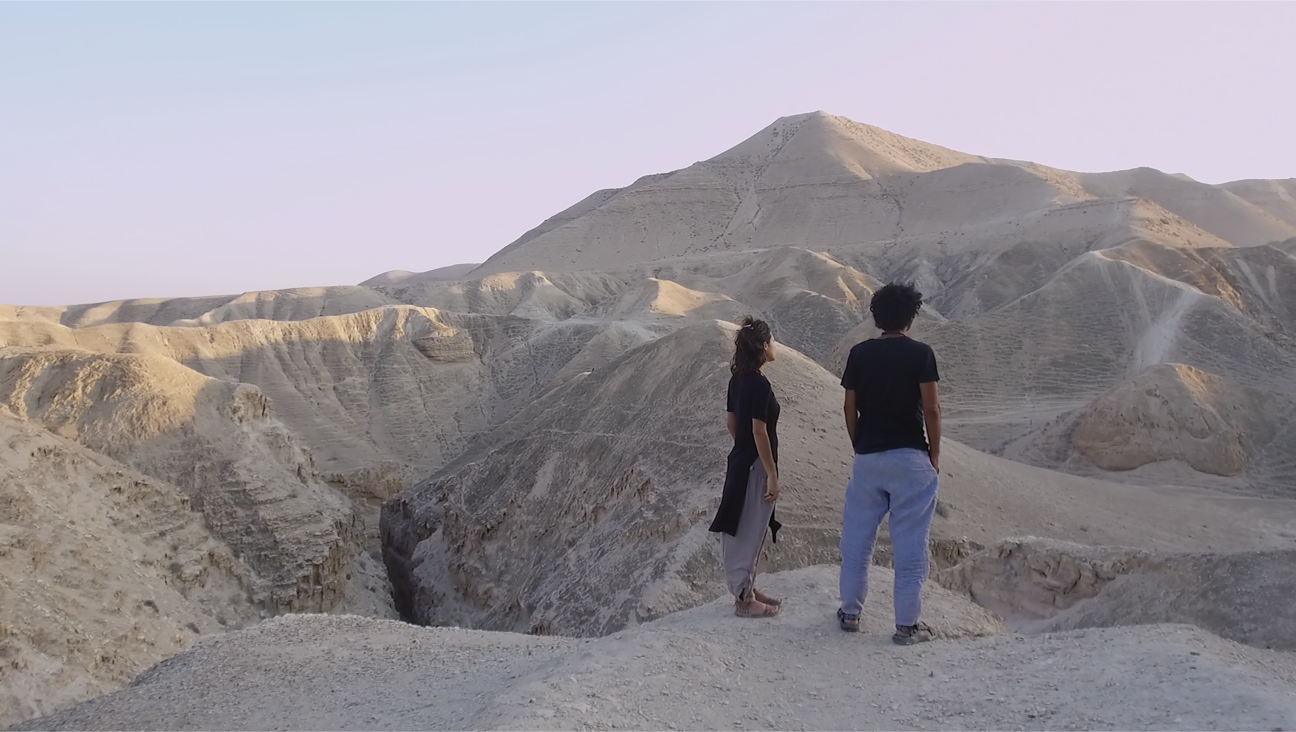They were wounded in combat and terror attacks. Now, they’re aiding the latest victims of Hamas
BeLev Echad offers wounded IDF soldiers and their families a refuge — and resources
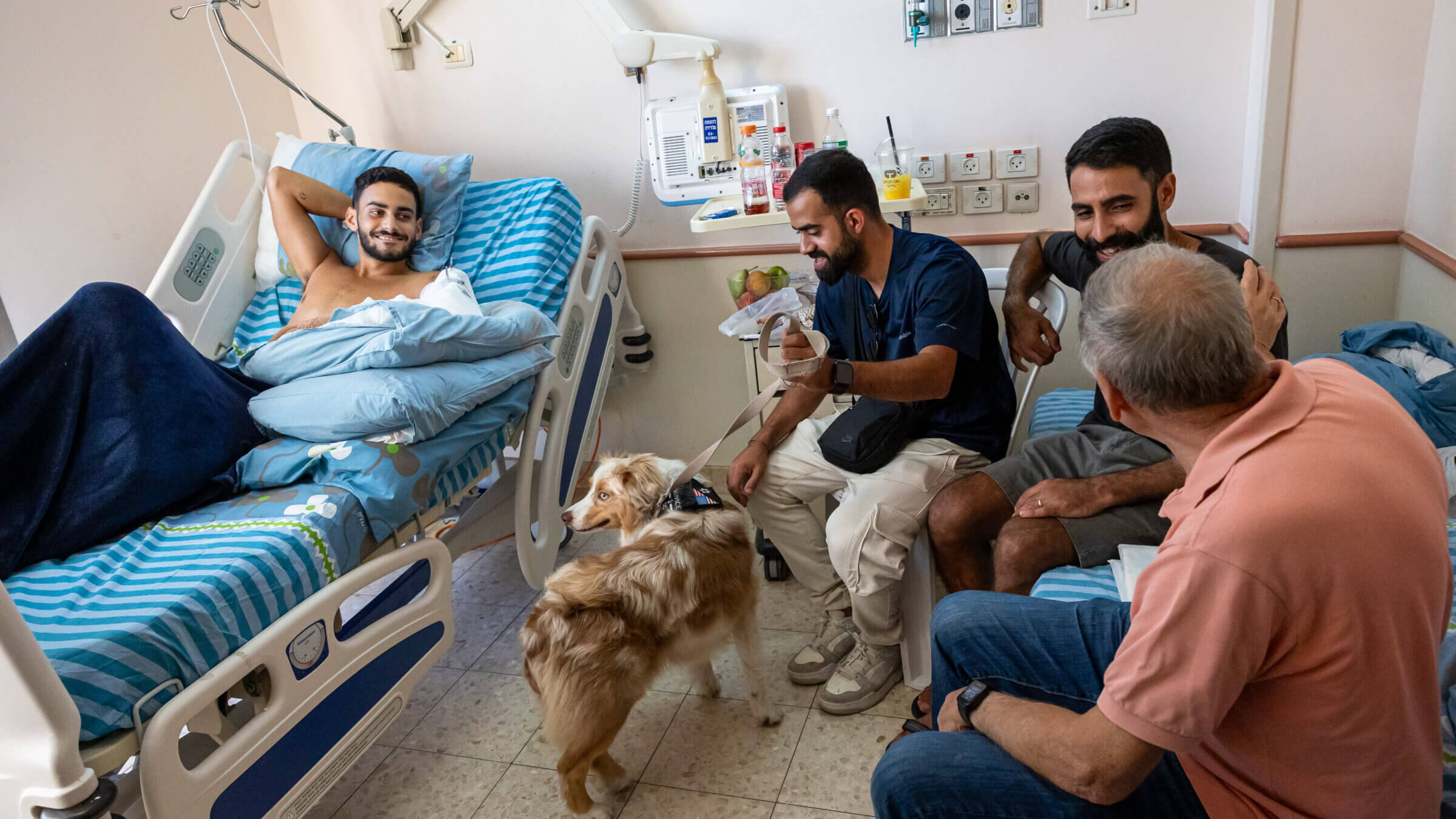
A 19-year-old wounded IDF soldier, left, meets with volunteers from BeLev Echad and their therapy dog, Damka, at Bellingson Hospital in Petah Tikva, Israel, on Oct. 11, 2023. Photo by Laura Ben-David for the Forward
KIRYAT ONO, ISRAEL — Raz Mizrahi and Dana Ophir were surfing in the Mediterranean, near a reef in Herzliya on Thursday, enjoying a rare day off. After a while Mizrahi told her friend that she had spent enough time battling the waves.
“Dana, I am tired!,” she said. “We are paddling and paddling and we are in the same place! In the same spot! How much more, Dana!”
Mizrahi, 21, made her way back to shore to be followed some time later by Ophir, 26. “You are a hero,” Mizrahi exclaimed. “You were fighting with the ocean nonstop!”
The friends had spent the day at the beach with other volunteers and staff of BeLev Echad, an organization through which, with funds raised primarily from the U.S., equips previously wounded IDF soldiers to help the newly wounded rehabilitate and rejoin civilian life.
Just a few days after their surfing trip, everything changed — for the entire country, and for the tight-knit community in Kiryat Ono, a middle class suburb just east of Tel Aviv in which BeLev Echad is based. Mizrahi, a beloved member of the staff, is now dead: She was among the hundreds of people who were killed at the music festival on kibbutz Re’im over the holiday of Simchat Torah.
“We are devastated. We are angry. We are broken,” Rabbi Uriel and Shevy Vigler, the organization’s New York-based founders, wrote in an email to supporters on Oct. 10, sharing the news of Mizrahi’s death.

A respite for soldiers
Who takes care of the newly injured?
In Israel, often those who have themselves been wounded.
Ophir, from Rishon LeZion, just south of Tel Aviv, is studying sports therapy at Ono Academic College in Kiryat Ono.
She posts workout routines and candid portraits of her life on Instagram, like many other fitness influencers.
But unlike most of them, when she was just 19, she was the victim of a terrorist attack — a militant drove a truck onto Jerusalem’s Armon Hanatziv promenade, killing four and injuring Ophir and 14 others. The impact shattered every bone in her pelvis.
The attack, which killed two of her close friends, also left her with a broken tibia and damaged her jaw, vertebrae and liver. She had massive internal bleeding and spent almost a month in the hospital confined to a wheelchair. At the time she was injured, she had just two weeks left in her IDF officer training course.
Her recovery was long and hard. But eventually, she finished her officer training, and served an additional five years in the IDF. And now she’s working to help transform the mansion in Kiryat Ono, usually a place for wounded soldiers to relax and rehabilitate, into an active rehab center. She’s looking for physiotherapists, occupational therapists and psychologists from across the country to help, as well as rehabilitative gear. When she can, she gives medical massages to wounded female soldiers.
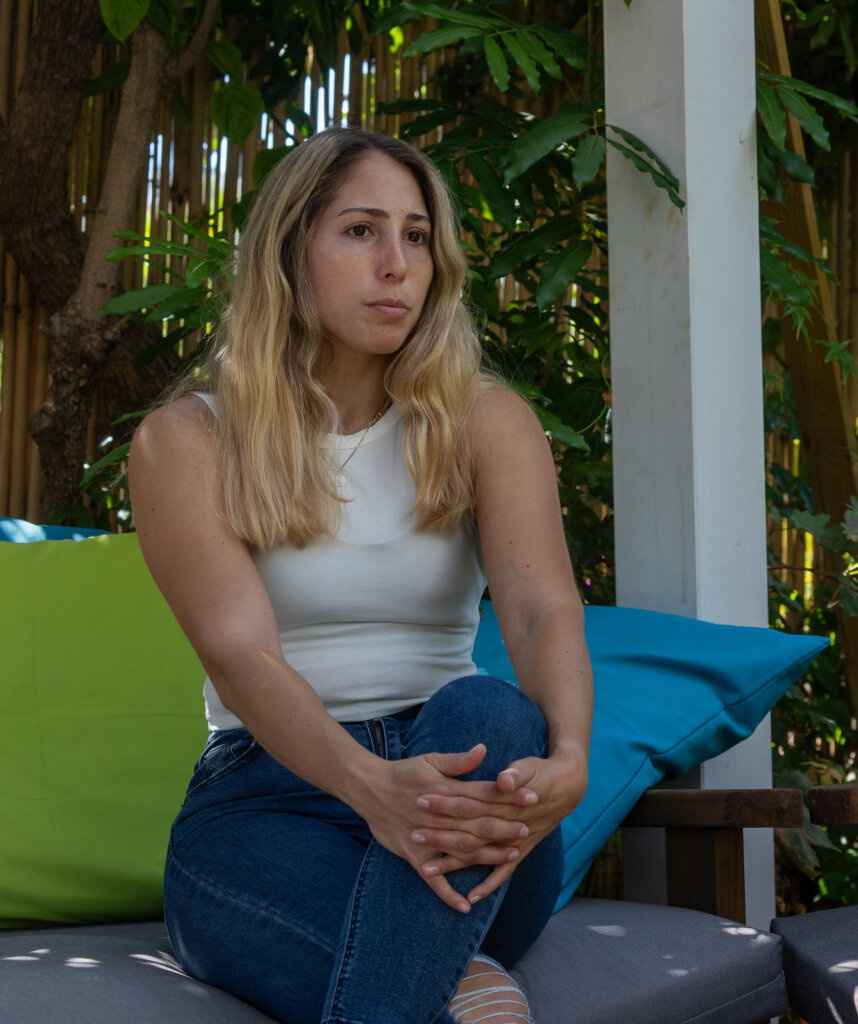
Her parents, too, have come to the house in Kiryat Ono, to help prepare food for wounded soldiers — on the day I visited, you could smell the freshly fried schnitzel.
“They ask me all the time, ‘Dana, what can I do?’” she told me on Wednesday.
“I didn’t think that in my generation there would be another Holocaust for Jews,” she added. “It’s really insane.”
“Here, in our country? People getting murdered? In their houses? Burned alive? It’s unbelievable.”
The BeLev Echad house, a sprawling, multi-floor, sun-drenched space, is in normal times a much calmer place: It has a massive pool and hot tub, a basement gym and even an room for mixed martial arts, a place where wounded veterans learn to trust their bodies again. There’s a modern kitchen and plenty of outdoor space. Bright colors are everywhere. Everything on the ground floor is wheelchair accessible, and they’re fundraising for an elevator so everyone can reach the higher floors. When I visited, it was cleaning day: Teams of volunteers quickly formed to move massive couches back into place in the living room.
The floors above them were being transformed into dormitories for recovering soldiers, and people fleeing the violence of Israel’s north and south.
Gal Rosenberg, 27, showed me around. Like most other volunteers, he was also wounded during his IDF service. The crushing loads he carried as a combat engineer herniated four disks in his lower back. Last week he led a group of volunteers to Beilinson Hospital in Petah Tikva. I saw the line of parked cars stretch for blocks around the medical campus.
Inside the hospital
The orthopedics wing was bustling. As we arrived, an IDF unit was just finishing a visit to an injured comrade, their M4s slung across their hips. “We should see each other under different circumstances,” the commander said to a doctor he knows, who had just finished recording a social media video about the devastation that had happened in the Gaza border towns. As they left, a young woman in a hijab and wheelchair rolled past the entrance to the wing.
BeLev Echad stationed themselves at the hospital to distribute overflowing totes of snacks and food to the families of those freshly wounded in Hamas’ latest attacks, and to offer the organization’s services. At least a dozen people crowded into one small hospital room, where a special forces soldier who was badly injured was resting. The window looked out onto a leafy tree. His mother, in a brightly patterned dress, began crying as soon as she left the room. “Anything you need, absolutely anything, you call me. This is my cell phone,” Rosenberg told her, speaking in soft tones. “You’re never alone,” he added. “You are big tzadikim,” he said to the soldier and his family, using the Hebrew word for righteous people.
Next, we visited a 19-year-old soldier from the Golani brigade, whose shoulder was injured in the first days of the war. His face lit up at the sight of Damka, the therapy dog brought along by BeLev Echad. The soldier’s mother told us that she has three other sons on active duty. The teen’s commander came to visit him, and another relative shared how 50 years earlier, he had served in the Yom Kippur War.
We stopped by another smiling young soldier. Her cell phone had been destroyed when she was injured, and the volunteers had given her a new one; they swung by to make sure it was working properly.
In the hall, hospital orderlies in kippot, with tzitzit swishing, pushed empty wheelchairs out of the way. Teenage girls in jeans short-shorts, long brown hair swinging down their backs, carried takeout containers past an Orthodox mother and her six children walking ahead of their injured father. He used crutches, a green knitted kippah on his head.
The war is still in its early days, and there will undoubtedly be much more for these volunteers to do at the hospital.
And the house itself will continue to serve as a place to mourn and heal. “It’s refreshing and gives you a good energy and good vibes,” Ophir told me.
It is also a space to honor the memory of Mizrahi, Ophir said. It “helped me take these memories and make them more alive.”
A message from our Publisher & CEO Rachel Fishman Feddersen

I hope you appreciated this article. Before you go, I’d like to ask you to please support the Forward’s award-winning, nonprofit journalism during this critical time.
We’ve set a goal to raise $260,000 by December 31. That’s an ambitious goal, but one that will give us the resources we need to invest in the high quality news, opinion, analysis and cultural coverage that isn’t available anywhere else.
If you feel inspired to make an impact, now is the time to give something back. Join us as a member at your most generous level.
— Rachel Fishman Feddersen, Publisher and CEO







